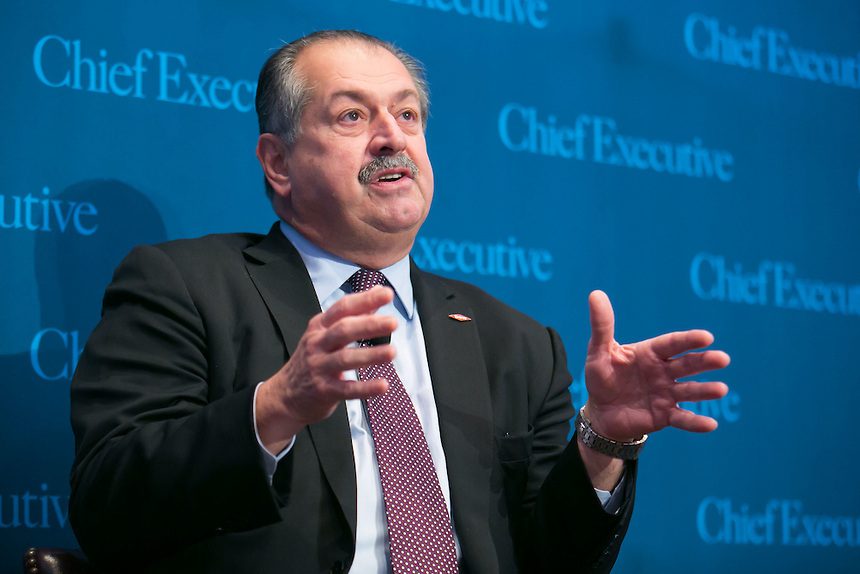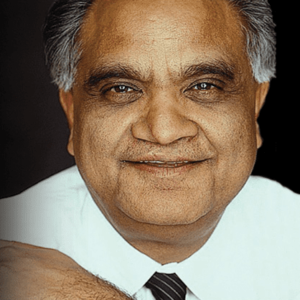Ram Charan: The One Essential For CEOs Facing The Worst



A dozen years ago, Andrew Liveris, CEO of Dow Chemical, was facing the worst day of his professional life. At the time, Liveris had a seemingly airtight agreement to buy Rohm and Haas, a chemical company, for around $9 billion. To pay for the purchase, he sold one of Dow’s key assets to a Kuwait company partially owned by the Kuwait government. Or thought he did.
But a few days before the transaction was going to be completed, the Kuwaitis sent a note to Liveris. The deal was off. There would be no cash coming. When Liveris got the news, he was devastated. He had no ready access to cash from any other avenue. Appeals to both Rohm and Haas—and to the Delaware court—went nowhere. It was solely up to him to steer Dow clear of a potential bankruptcy and to preserve his reputation.
Everyone knows the cliché about the CEO having “the loneliest job in the world.” Extreme surprises like the one that Liveris faced are rare. Less dramatic ones are more common: A standoff with the board or a particular board member; a product disaster, like the Boeing 737 Max; a social media firestorm; even an attack by a key executive.
Loneliness during these times isn’t entirely preventable—but from my experience working with dozens of chief executives, I can tell you that the feeling can be quickly overcome. By putting into place a structure before those situations arise, leaders can avoid much of the uncertainty, fear, and clouded judgment that loneliness inevitably creates.
The core of this structure is simple, essential and too often overlooked. First, you must assemble a group of people who act as a sounding board. Second, you must engage in the right kinds of conversations.
Every leader needs at least one or two people to talk to when a difficult moment arises. The time to develop these relationships is not when you need them—it’s when you don’t.
Who should these people be? They don’t have to be in your industry, or even in business, as long they have common sense and share some essential qualities.
Who has the wisdom and curiosity to ask great questions, the kind that open the doors of your mind and change your perspective? Simple questions can break your mental blockages and help you shape new solutions.
And whom do you trust implicitly? You need people who are honest to the bone—and have your best interests at heart. Then you can be totally open with them, without fear of looking weak or foolish.
Some CEOs form relationships through peer networks, like the Young Presidents’ Organization or Chief Executive Group’s Chief Executive Network. Others meet periodically with a small group of CEOs from other industries. Jeff Immelt, former CEO of GE, was known to do this. So do several other CEOs I know.
Nurturing this group takes time and commitment, and there is no shortcut. But it is well worth the effort. Hiring a professional coach or a psychiatrist in the midst of a crisis won’t cut it.
If this advice seems simplistic, I can tell you—it isn’t. Far too many CEOs I have worked with make the mistake of neglecting development of this “personal board of directors,” as some call it.
For those who have not yet had the kind of day Liveris had, I can tell you what will happen as you are confronted with disaster, public humiliation, press attacks and so on. First, you will not think clearly. There is a fog brought on by emotion. Second, your fear will block out options. There may be a set of goals—two, three, ten—and they will conflict. You won’t know how to resolve them.
That’s where you need to be able to turn to your personal confidants or sounding board to help you think things through.
To start, call one of them and ask them to have a drink and dinner. Tell them that the conversation is very confidential. Sit down, order the meal and start talking.
You’ll probably be unclear at first. The other person will probably have to listen, draw you out, and probe to understand the many things you’re trying to consider. Your thoughts may be rather incoherent, and you may not be able to articulate a solution. You may blame someone — “So and so did such and such to me” — that kind of thing.
All of that is okay—and why you want to be talking to someone you know well and really trust.
In highly-charged situations, one-on-one is best. You will be seeking new ways of looking at the problem, clarity about different obstacles, and trying to keep your emotions from distorting your thoughts. The person will be asking common sense questions. The conversation will be informal, and you can meet again over a period of time.
Ideally the person will ask simple questions, and you’ll keep talking and explaining. They’ll pick up on patterns in the conversations, threads that you are unaware of. They may offer suggestions, ask more questions, or provide some ideas. You’ll start to see things differently. And you’ll see a way through.
Liveris did exactly that. He talked to a number of people, people he had known for a long time, whom he trusted, and asked them what they would have done. As a result, he came up with several alternatives—and eventually found a financing option that included participation from Warren Buffett. Throughout the ordeal, Dow’s stock price suffered, and people thought it would go bankrupt.
But Liveris persevered, Dow completed the transaction, and the share price came back. And so did Liveris. He helped accomplish the merger of Dow and DuPont. A major feat.

Chief Executive Group exists to improve the performance of U.S. CEOs, senior executives and public-company directors, helping you grow your companies, build your communities and strengthen society. Learn more at chiefexecutivegroup.com.
0

1:00 - 5:00 pm
Over 70% of Executives Surveyed Agree: Many Strategic Planning Efforts Lack Systematic Approach Tips for Enhancing Your Strategic Planning Process
Executives expressed frustration with their current strategic planning process. Issues include:
Steve Rutan and Denise Harrison have put together an afternoon workshop that will provide the tools you need to address these concerns. They have worked with hundreds of executives to develop a systematic approach that will enable your team to make better decisions during strategic planning. Steve and Denise will walk you through exercises for prioritizing your lists and steps that will reset and reinvigorate your process. This will be a hands-on workshop that will enable you to think about your business as you use the tools that are being presented. If you are ready for a Strategic Planning tune-up, select this workshop in your registration form. The additional fee of $695 will be added to your total.

2:00 - 5:00 pm
Female leaders face the same issues all leaders do, but they often face additional challenges too. In this peer session, we will facilitate a discussion of best practices and how to overcome common barriers to help women leaders be more effective within and outside their organizations.
Limited space available.

10:30 - 5:00 pm
General’s Retreat at Hermitage Golf Course
Sponsored by UBS
General’s Retreat, built in 1986 with architect Gary Roger Baird, has been voted the “Best Golf Course in Nashville” and is a “must play” when visiting the Nashville, Tennessee area. With the beautiful setting along the Cumberland River, golfers of all capabilities will thoroughly enjoy the golf, scenery and hospitality.
The golf outing fee includes transportation to and from the hotel, greens/cart fees, use of practice facilities, and boxed lunch. The bus will leave the hotel at 10:30 am for a noon shotgun start and return to the hotel after the cocktail reception following the completion of the round.